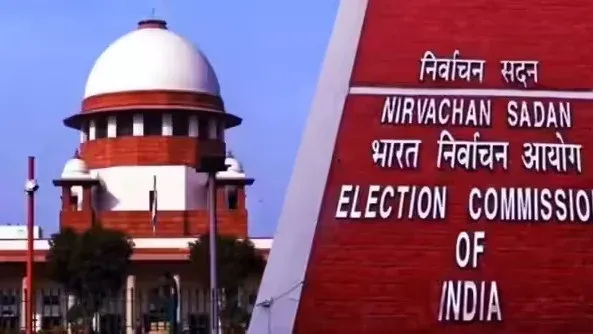
SC on Bihar Survey: Verdict Applies Pan-India, Exercise Can Be Struck Down
The Supreme Court has issued a stern warning regarding the Bihar government’s caste survey, stating that if any illegality is found in the process, the entire exercise could be struck down. This landmark decision, delivered by a bench led by Justice Sanjay Karol, carries implications for similar surveys across India, clarifying that the verdict will apply pan-India and is not limited to Bihar alone.
The court’s concern centers on the accuracy and legality of the data collection methods employed in the survey. Justices Sanjay Karol and Aravind Kumar emphasized that the survey’s validity hinges on adherence to established legal principles and the absence of procedural flaws. Any deviations from these norms could render the entire exercise null and void.
During the hearing, the bench underscored the importance of ensuring that such surveys are conducted in a manner that upholds the principles of justice and fairness. The court acknowledged the significance of collecting data for informed policy-making and social justice initiatives. However, it also cautioned against compromising legal standards in the pursuit of these objectives.
“If there is any illegality, the entire exercise will be struck down,” Justice Karol stated firmly, highlighting the potential ramifications of procedural lapses. The Supreme Court’s stance reflects a commitment to upholding the rule of law and ensuring that government initiatives are conducted within the bounds of legal propriety.
The implications of this ruling extend beyond the immediate context of the Bihar caste survey. The court’s clarification that the verdict will apply pan-India suggests that other states contemplating or conducting similar surveys will be subject to the same stringent legal scrutiny. This could lead to a reassessment of survey methodologies and data collection practices to ensure compliance with legal standards.
The decision comes amidst ongoing debates about the use of caste-based data for affirmative action and social welfare programs. Proponents of such surveys argue that they are essential for understanding social inequalities and tailoring policies to address the needs of marginalized communities. Critics, on the other hand, raise concerns about potential privacy violations and the perpetuation of caste divisions.
The Supreme Court’s intervention underscores the need for a balanced approach that respects both the goals of social justice and the principles of legal propriety. By emphasizing the importance of accuracy and legality in data collection, the court seeks to ensure that such surveys serve their intended purpose without infringing upon fundamental rights or compromising the integrity of the legal system.
The court has adjourned the matter for further hearing, during which it is expected to delve deeper into the specific concerns raised regarding the Bihar caste survey. The outcome of these proceedings could have far-reaching consequences for the future of caste-based data collection in India.
Ultimately, the Supreme Court’s message is clear: while data collection for social justice is important, it must be done legally and accurately. Any shortcuts or deviations could invalidate the entire process.
Disclaimer: This news article is based on publicly available information and may be subject to updates.